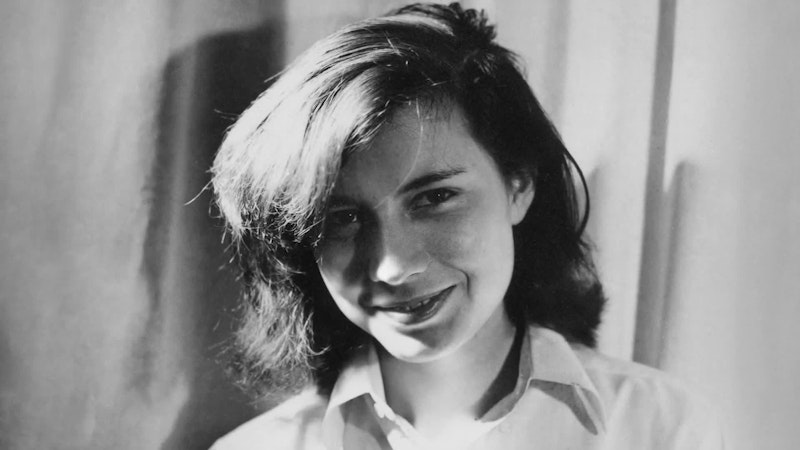“And here is my diary, containing the body—the painfullest feeling is that of your own feebleness.” This is one of the early entries Patricia Highsmith made in her diary. She was a woman of many paradoxes and contradictions, as is shown in a recent documentary, Loving Highsmith (2022), a Swiss-German production, directed by Eva Vitija.
It’s impossible not to focus on Highsmith’s homosexuality, especially the fact that for most of her life she was a closeted lesbian. She lived a life of dual identity, out of necessity. It’s not surprising then that she attempted to work out some of her fragmented emotions in her novels. The famously awful recurring character in her novels, Tom Ripley, has some aspects of Highsmith’s personality. He’s cold, yet strangely submissive. His sexuality is always in flux, and one wonders whether he’s actually gay or an opportunist who will do anything to get what he desires.
There’s plenty of indication in the documentary that Highsmith was both “nice” and “cold.” We see interviews from her former lovers, women that both loved and hated Highsmith. Writer Marijane Meaker shared a house with Highsmith in the 1950s, and with refreshing honesty, she describes not only Highsmith’s but also her own life as a lesbian.
Whether by accident or intentionally, Vitija’s camera reaches Meaker beyond identity politics. One gets a feeling that Meaker isn’t interested in such a conversation anyway. She’s honest and direct about her life in relation to Highsmith and being a lesbian during the time when it was unimaginable to be transparent about that.
It’s through Meaker that we learn more about Highsmith’s mother, whom Meaker calls a “bitch.” It’s not surprising why. Highsmith’s mother divorced her father nine days before she was born, and married a different man and abandon little Patricia in the care of her grandmother. She’d come back into her daughter’s life but the strife and hatred between the two women continued. Highsmith’s mother told Patricia that she attempted to abort her.
That’s not exactly what a child or a grown woman wants to hear about herself: unwanted by the person who’s supposed to be the most important caregiver of unconditional love. Vitija doesn’t probe the depths of this relationship, especially since much of Highsmith’s outlook on life revolved around her destructive relationship to her mother.
There are two more women that Vitija interviewed, both former lovers of Highsmith. One is Tabea Blumenschein, a German performer, who specialized in cabaret and drag performances. We gather no details about Highsmith from her ruminations. Instead, we learn more about Blumenschein, who in her old age, is still trying to cultivate the cabaret persona. But instead, we see a lonely woman, clinging to her past. She wants to be important in the scheme of Highsmith’s life, but in all of that effort, it’s revealed she hardly had any impact on Highsmith.
Similarly, Vitija interviews Monique Buffet, a French translator, who was also involved with Highsmith. Buffet appears a little more self-confident than Blumenschein, but even so, she too is pathetically holding onto the legend of Highsmith. One can only assume that she suffers from avoidance of emotions, and isn’t authentically revealing anything about herself or Highsmith.
Highsmith’s family in Texas is more direct than Buffet or Blumenschein. Although Vitija is trying to depict the family as backward in some way, a family that was never able to accept Highsmith’s homosexuality, they speak as openly and honestly as possible. Perhaps Vitija was unable to get under the skin, and as a result, her subjects remained closed.
A writer can be an enigma. This is true of Patricia Highsmith. But this shouldn’t stop us from attempting to get to know them beyond their personae. Highsmith cultivated a persona, mostly because of the impossibility of being an open lesbian. But she was also more psychologically complex, not only because of her sexual orientation.
Meaker sheds some light into this emotionally-charged woman (especially through the archival footage of Highsmith) but it never moves beyond the surface. It’s as if the filmmaker has fallen in love with Highsmith, and is incapable of seeing her flaws. Vitija can’t really be blamed for such a thing—it’s very difficult to accept imperfect humanity in those subjects we greatly admire. But if she plunged into the deep crevices of Highsmith’s mind (as much as is possible), she may have found a more visible person, rather than a persona.

